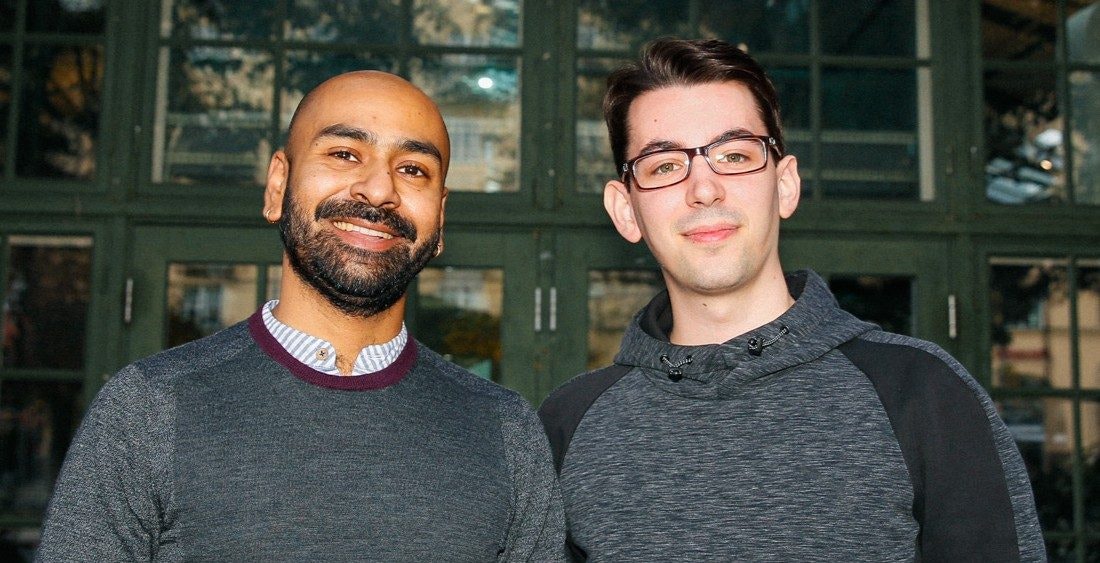London-based biotech Cranebio, which works on the delivery of RNA treatments, thinks it’s found a way to solve a conundrum facing drug developers trying to cure diseases like cancer and Parkinson’s.
In tests using the startup’s technology on mice in January, the company proved that by using nanoparticles — tiny materials that have specific physicochemical properties — made from red blood cell membranes, it can reach target cells, such as those in the brain and the immune system, 10 times more effectively than current synthetic methods.
Neurodegenerative diseases and cancer share two challenges: a lack of effective treatments and rising cases due to an ageing population. One way of targeting such diseases that has shown promise in the lab is RNA-based therapies, but they often fail in real life because they can’t effectively reach target tissues like the brain or the immune system.
“We’ve just shown that our nanoparticles can cross the blood-brain barrier and deliver mRNA to neurons with over 75% expression – a huge 10x leap compared to the less than 7% typical with current approaches,” its CEO Luca Bolondi tells Sifted.
“One of the VPs at a major pharma we’re speaking with said he’s never seen data like this,” he says. “For us, this was a breakthrough and a huge proof of concept.”
Using the body’s own system
Bolondi says the main reason the tests were more successful than current methods was that “red blood cells are the most common type of cell in the human body and they are the only type of cell that is everywhere in the human body.
“If you take the brain, I would say a typical lipid nanoparticle would edit maybe 5% of the cells if it reaches the brain at all, and we edited over 75% [of reached cells],” Bolondi adds.
While current cancer vaccines show a reduction in recurrence rates of around 20-30%, Bolondi says they still allow metastasis to occur in many patients — something the right delivery method could potentially solve.
Where the cost of RNA or DNA synthesis used to create drugs has fallen by more than 99% over the past 15 years, the challenge now lies in delivering the drugs to the right cells.
“What we’ve shown isn’t just that efficient brain delivery is possible — it’s that it can be done safely, affordably and with technology simple enough to be made almost anywhere,” Bolondi says.

Cranebio’s next goal is to test its tech on non-human primates ahead of moving into human trials in January next year.
“What we want to do is to benchmark the system and to prove to the biotech industry that this is the best way to deliver RNA to these targets,” says Bolondi.
“When we’ve proven that it’s safe and effective, we want to open this technology up to as many companies as possible.”
Impact first approach
Cranebio was founded in 2022 at Imperial College after Bolondi met his cofounder Sujaan Das, a long-term blood chemistry researcher, during a programme at company builder Entrepreneur First in London.
Instead of focusing on big profits, Bolondi and Das are determined to make the technology widely accessible, so more companies can use it to develop drugs that could cure diseases like cancer and neurodegenerative disorders.
“We got into this because we lost people in our families to genetic diseases. I lost my 20-year-old cousin to a neurological condition, and my cofounder also lost someone close, so we are predominantly here for the impact.”
The company, which is already collaborating with big pharma, is backed by angels like former Microsoft director Charlie Songhurst and US drug developer Eli Lilly’s former director Anindya Sen, the Norrsken accelerator and Exor Ventures. Cranebio has raised around $1.5m so far.
Bolondi says Cranebio has been careful to ensure investors are aligned with their mission.
“With all the investors, we had to check if there might be a situation where we’d face a trade-off between prioritising profit and prioritising people,” he says.
“We’re not just working to create a world where brain diseases are treatable, but one where everyone, regardless of income or status, can access the cures they need to live a full life with a healthy mind.”
Read the orginal article: https://sifted.eu/articles/the-breakthrough-for-drug-development-cranebio/


